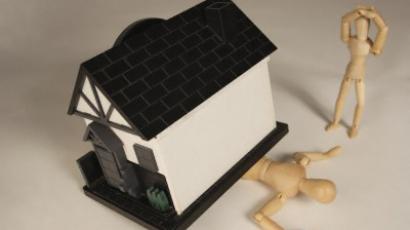America slams into $14 trillion debt ceiling

May 16 marks the day the United State’s hit its debt ceiling. The US Treasury is now unable to borrow funds unless the US Congress raises the ceiling. In order to cope until a decision is made; the Treasury is cutting back on many of its programs.
US Treasury Secretary Timothy Geithner has actively been encouraging US lawmakers to act swiftly to prevent the US government from defaulting on its debts. "I want to again encourage Congress to move as quickly as possible, so that all Americans will remain confident that the United States will meet all of its obligations – not just our interest payments but also our commitments to our seniors," he said.Republicans in the US Congress have refused to raise the debt ceiling unless the White House and congressional Democrats agree to massive long-term government spending cuts.Currently, the debt ceiling sits at $14.29 trillion.Raj Doshi, an investor and the founder and president of Mani Capital, Inc. explained that nation continues to overspend into greater debt with no intent to pay it back. Raising the debt cleaning would continue this flawed practice.“All this is going to amount to the death of the dollar,” he argued. “If you were the leader of a company whose tripped its covenants just about every quarter, do you think your creditors or shareholders will continue to finance your business?”Choosing to not raise the debt ceiling will amount to a decrease in the American standard of living, but that is what needs to happen at this point, he argued. It will also force Congress to spend less and make cuts to existing programs. “The United States is broke,” Doshi said. “The government has gotten too big.”“We have a real spending problem,” he added. He argued the government is spending too much and has incurred far too much debt via increased programs and a number of overseas wars. Bailouts and government involvement in the market is adding to the problem. It’s time the US government stepped back, he contended. “We need to let free markets do it thing,” Doshi argued.To the contrary, Dean Baker, a co-director at the Center for Economic and Policy Research (CEPR) in Washington explained that if Congress fails to raise the debt ceiling the US could default on its debt – which would be economically damaging. If the ceiling is not raised or the government is unable to pay its bills, all of America would suffer. The economy would slip and Americans would no longer receive government aid. Most polititians want to cut programs, but many Americans do not. The programs that need to be cut, such as the military, are not areas the Congress are willing to cut. “Programs that take up most of the budget, with the exception of the military, do enjoy overwhelming support of the public,” Baker said. “If you had our representatives in Congress saying you’re not getting your social security check next month, well you’re not going to be in Congress very long.” The people do not want their programs cut. In order to maintain programs the ceiling must be raised so the US government can continue to borrow and spend authorized funds.














